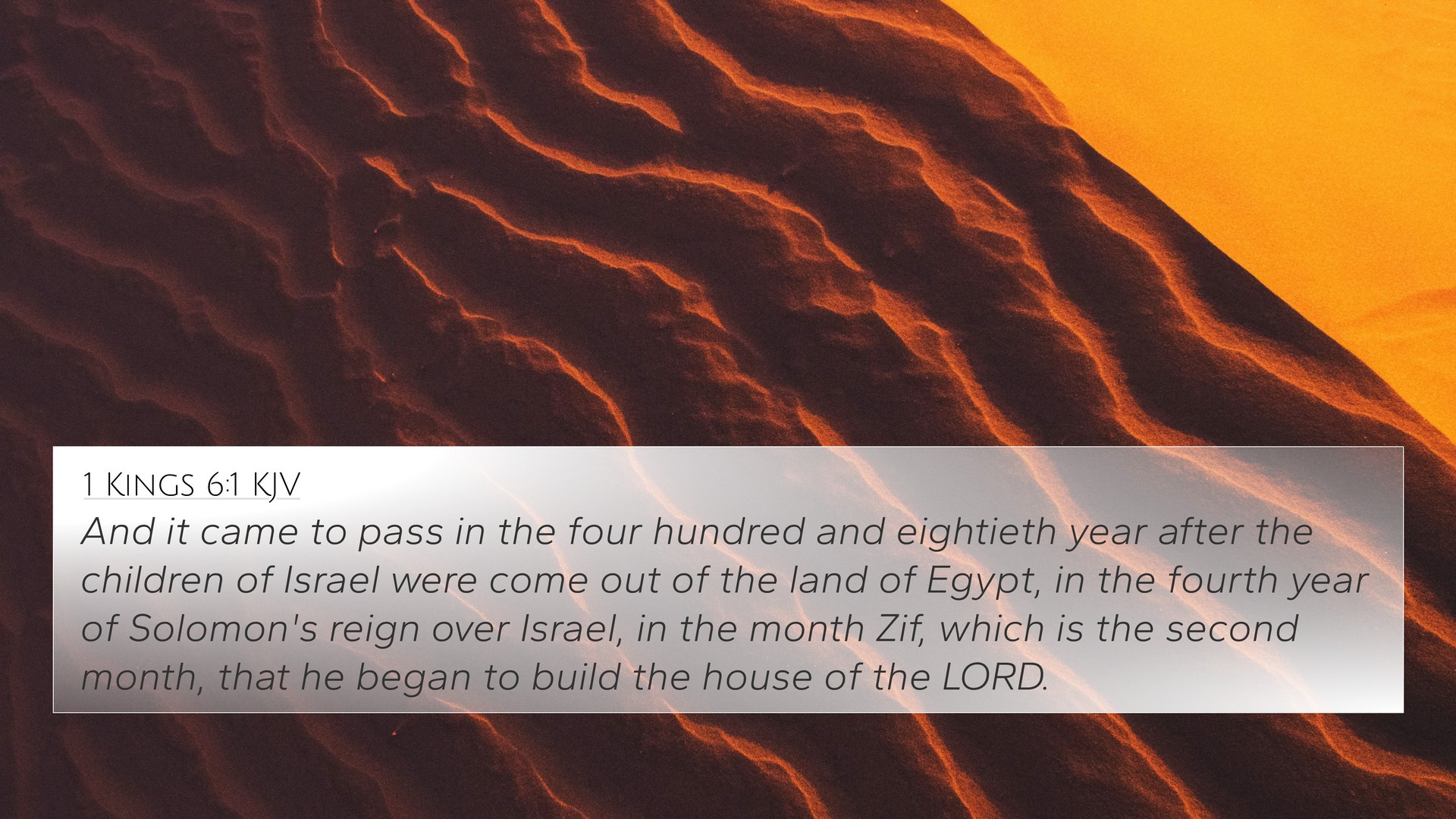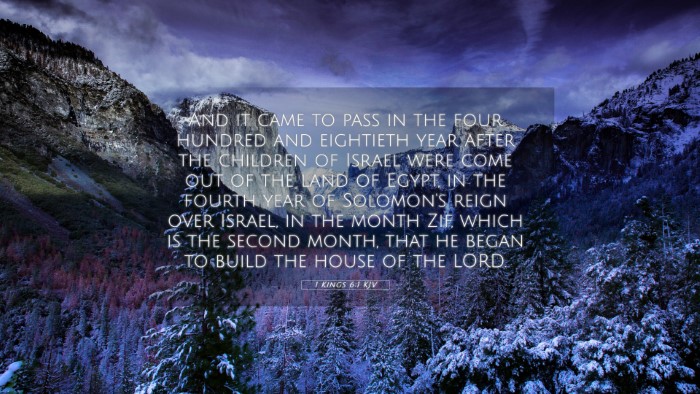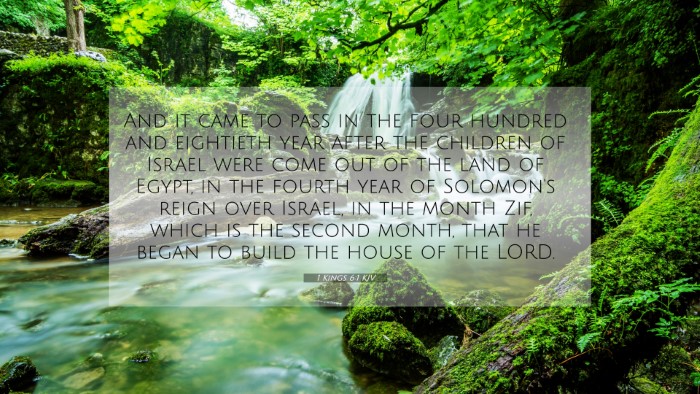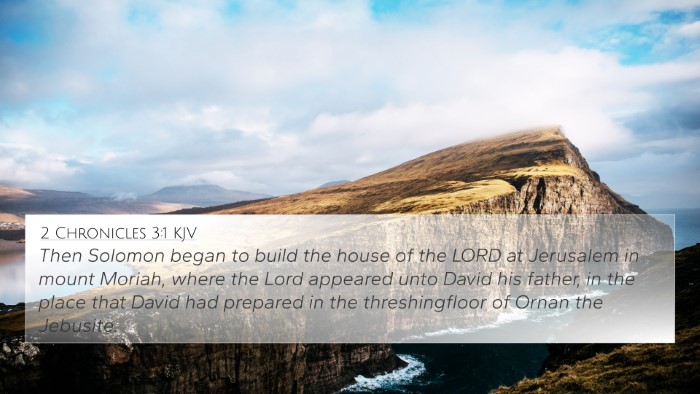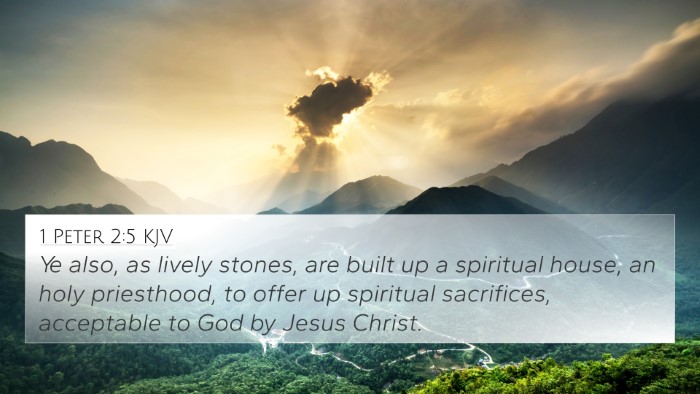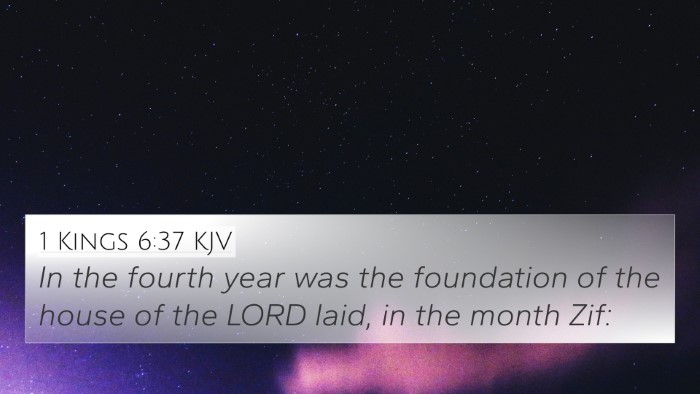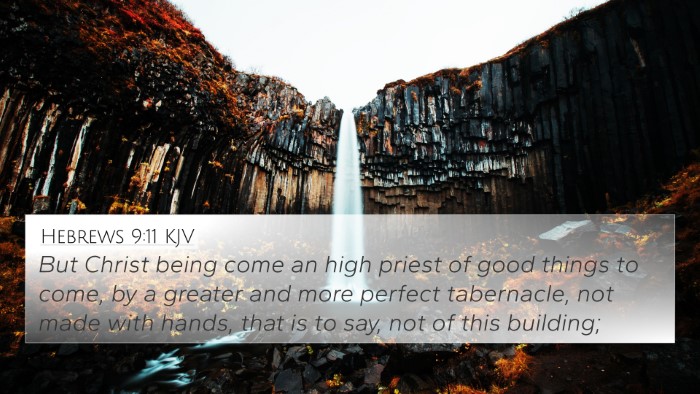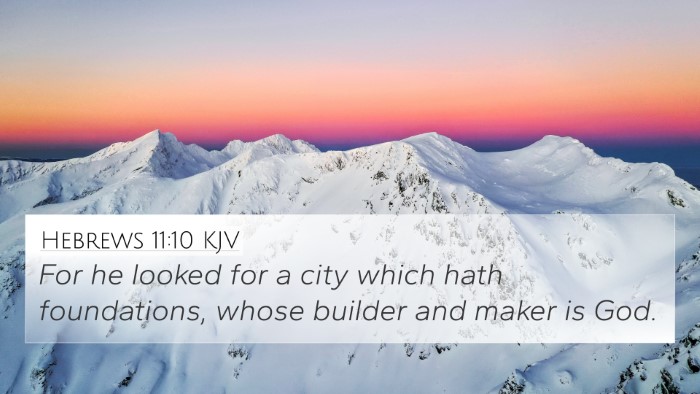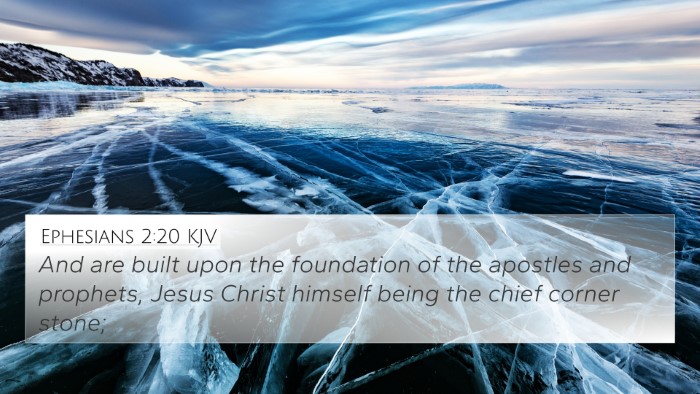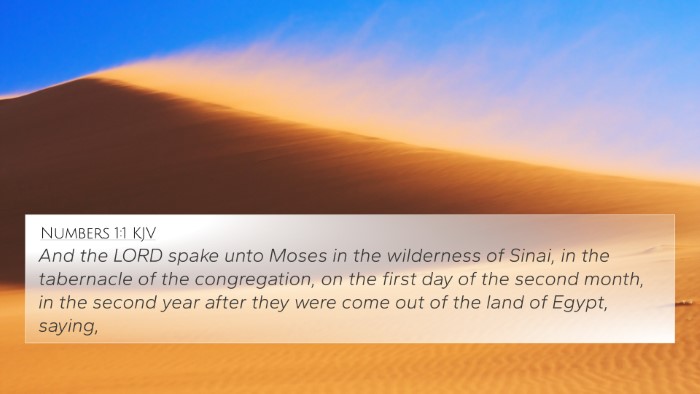Understanding 1 Kings 6:1
Verse: "And it came to pass in the four hundred and eightieth year after the children of Israel were come out of the land of Egypt, in the fourth year of Solomon's reign over Israel, in the month Zif, which is the second month, that he began to build the house of the Lord."
Summary of Insights
This verse marks a significant historical moment in the biblical narrative, indicating the beginning of the temple's construction in Jerusalem under King Solomon. With careful reflections drawn from the works of Matthew Henry, Albert Barnes, and Adam Clarke, we will explore the meanings, implications, and cross-references related to this pivotal scripture.
Historical Context
Matthew Henry: Highlights the importance of the temple as a central place of worship for the Israelites, fulfilling the long-held desire to create a dwelling for the Lord among His people. This act is seen as a culmination of the divine promise made to David.
Albert Barnes: Notes that the mention of the four hundred and eighty years after the Exodus signifies a specific timeline that underscores God's faithfulness to His people throughout their journey. It connects past events with the present action of building the temple.
Adam Clarke: Explains the significance of the month 'Zif' and its implications for the agricultural calendar, reflecting on how the timing of the construction aligns with the season favorable for such monumental work.
Theological Significance
- Divine Presence: The building of the temple represents God's promise to dwell among His people, reinforcing the thematic connection of God's desire for fellowship with humanity.
- Leadership and Obedience: The act of Solomon leading the temple construction exemplifies biblical leadership, characterized by dedication to God’s commandments and enthusiasm for fulfilling divine purposes.
- Israel's Identity: The temple signifies national unity and identity for Israel, portraying them as the chosen people of God with a designated place for worship.
Cross-References
This passage connects with various other scriptures that further illuminate its significance:
- Exodus 25:8: "And let them make me a sanctuary; that I may dwell among them." - This is the divine mandate that precedes the eventual construction of the temple.
- 2 Samuel 7:12-13: God's covenant with David, expressing that his son would build a house for God, directly ties to Solomon's actions.
- 1 Chronicles 28:10: David commands Solomon to build the temple, establishing a direct line from David to Solomon in fulfilling God’s plan.
- 1 Kings 8:17-19: Solomon reflects on the significance of the temple in his dedication speech, affirming its importance as the house of God.
- Isaiah 66:1: "Heaven is my throne, and the earth is my footstool: where is the house that ye build unto me?" - A prophetic insight into God's transcendent nature versus the physical temple.
- Acts 7:47-50: Stephen quotes the building of the temple and emphasizes its limitations, pointing to the reality of God not being confined to physical structures.
- Hebrews 9:24: Discusses the true sanctuary not made with hands, contrasting with the physical temple built in Jerusalem, deepening our understanding of Christ as the ultimate temple.
Comparative Analysis
This verse not only marks a historical point but opens pathways for deeper understanding of God's covenant and relationship with His people. The temple symbolizes a more profound spiritual truth that resonates throughout the New Testament, illustrating a comprehensive narrative of God's redemptive work.
Concluding Thoughts
The construction of the temple is a key moment in biblical history that serves as a reminder of God's promises and His presence among His people. It illustrates the theme of divine promise fulfilled, leadership aligned with God's will, and the significance of place in worship. Through cross-referencing and thematic connections, we enrich our understanding of the scriptural narrative and its continuing relevance.
For those engaged in bible verse cross-referencing, utilizing tools such as a bible concordance or bible cross-reference guide can enhance the study of related themes and concepts. Engaging in cross-referencing bible study methods can open up a deeper dialogue between scriptures across the Old and New Testaments.
